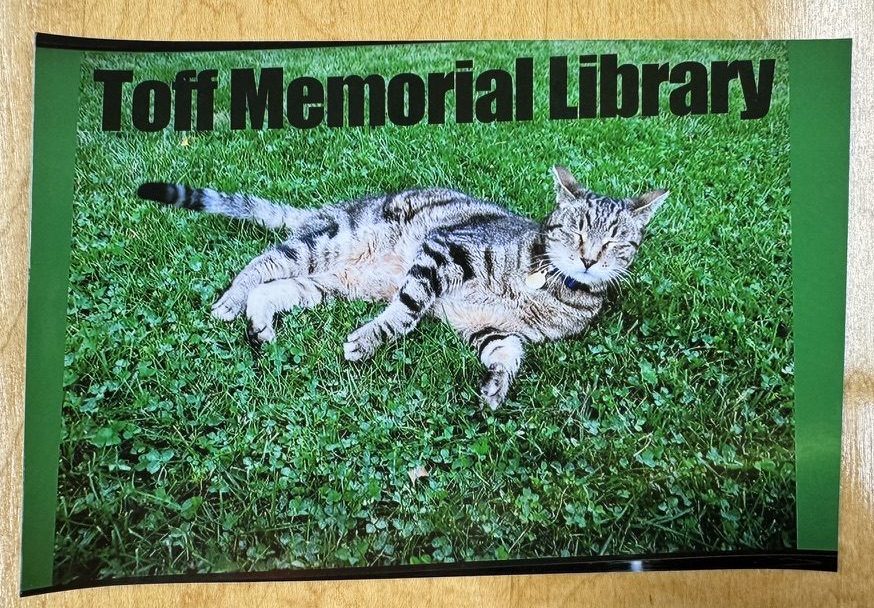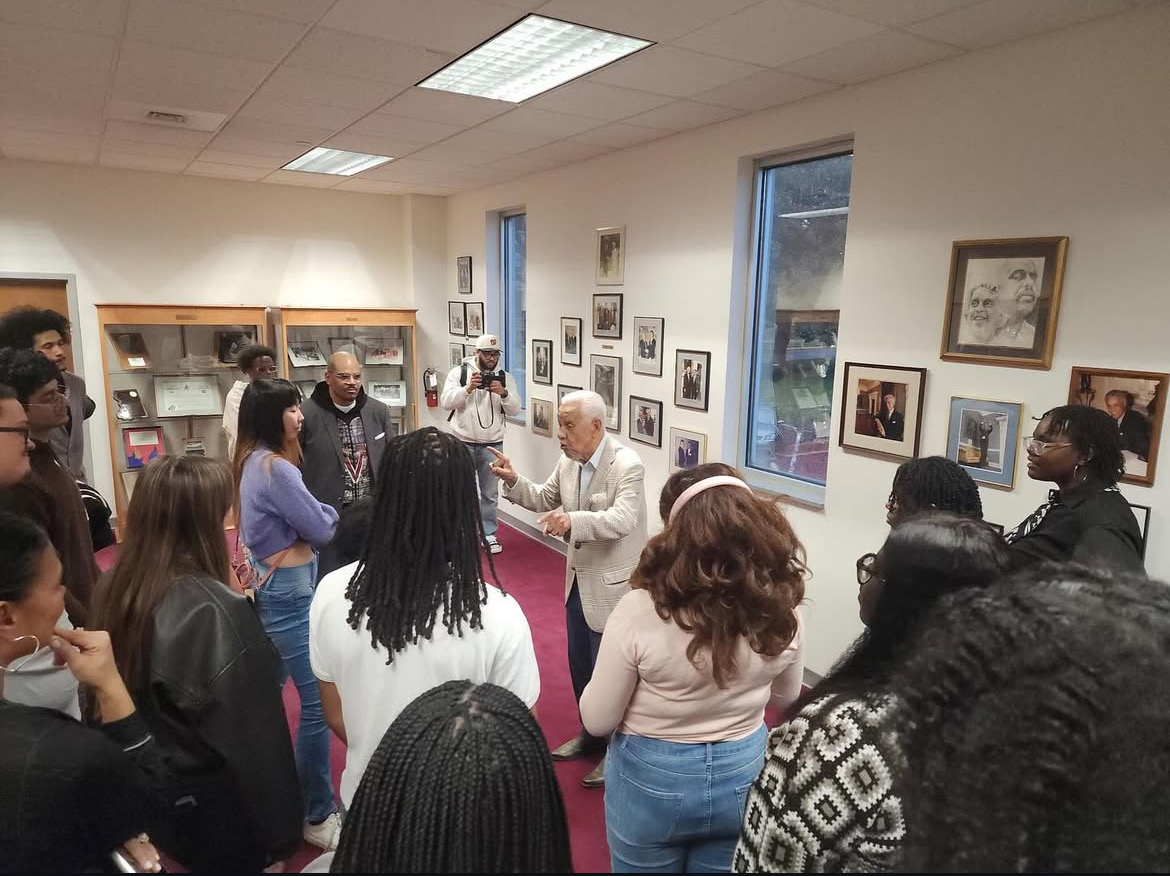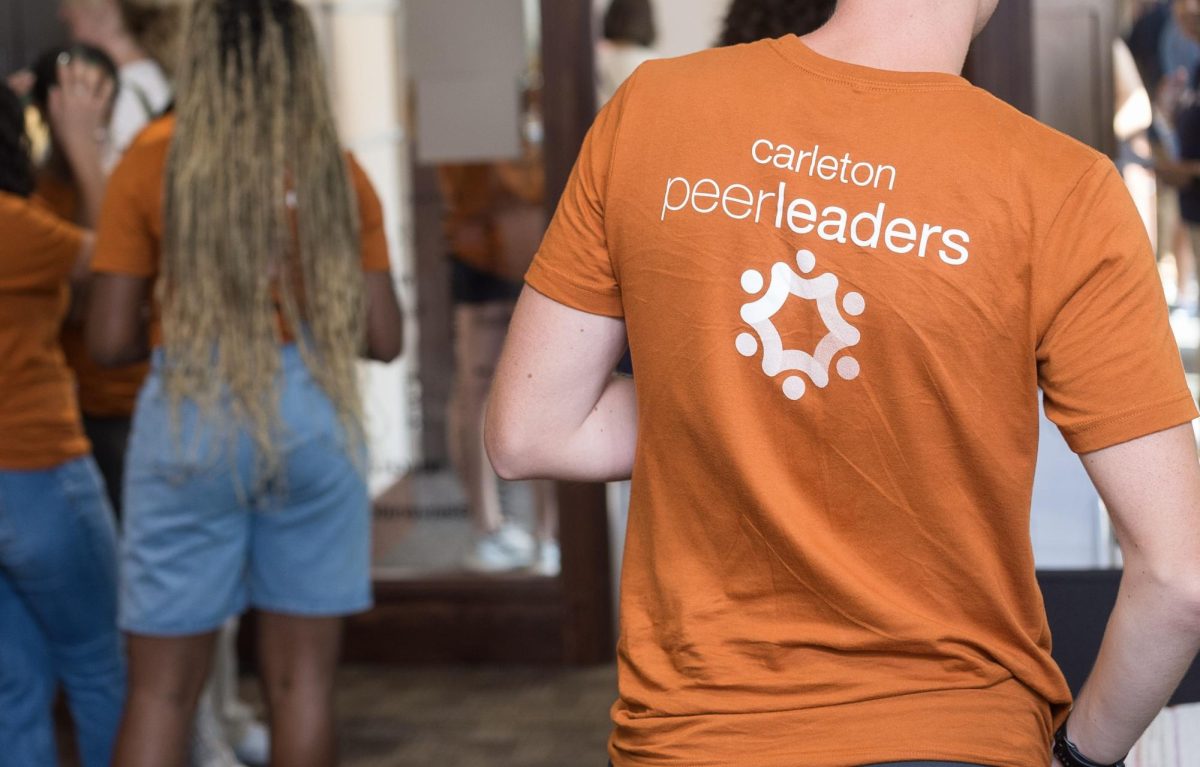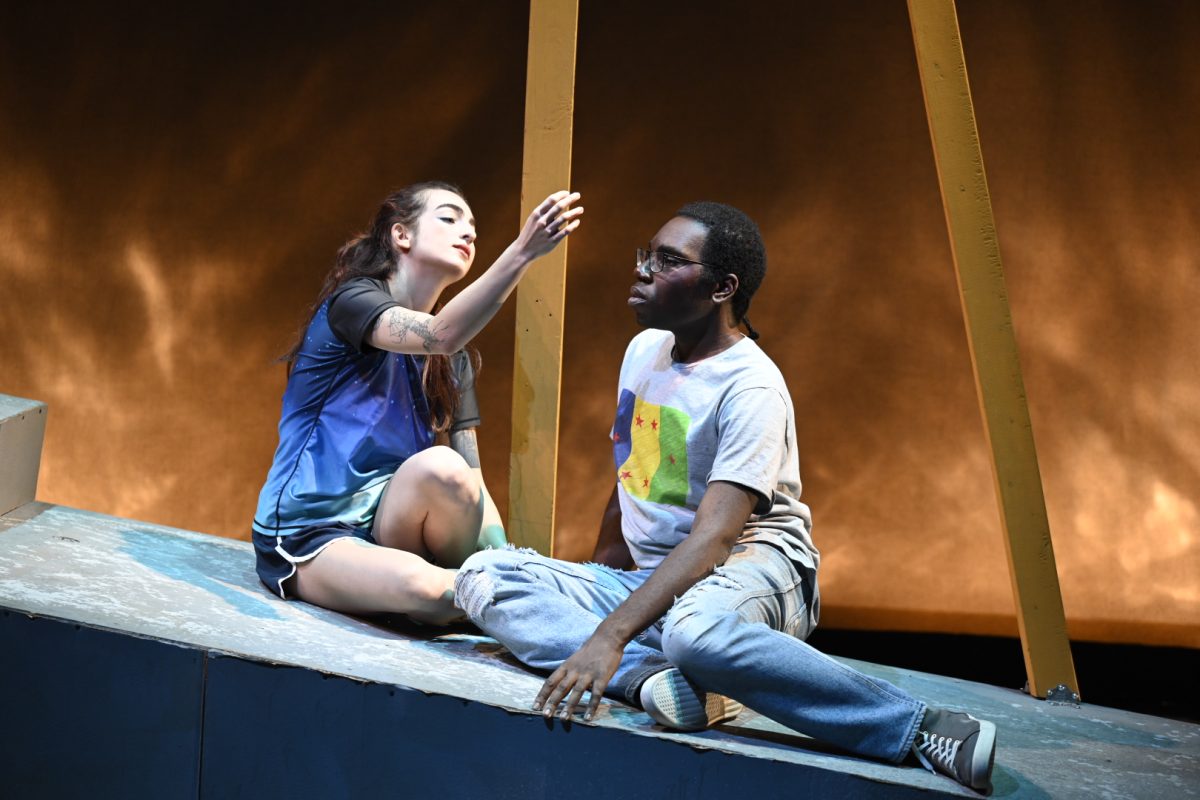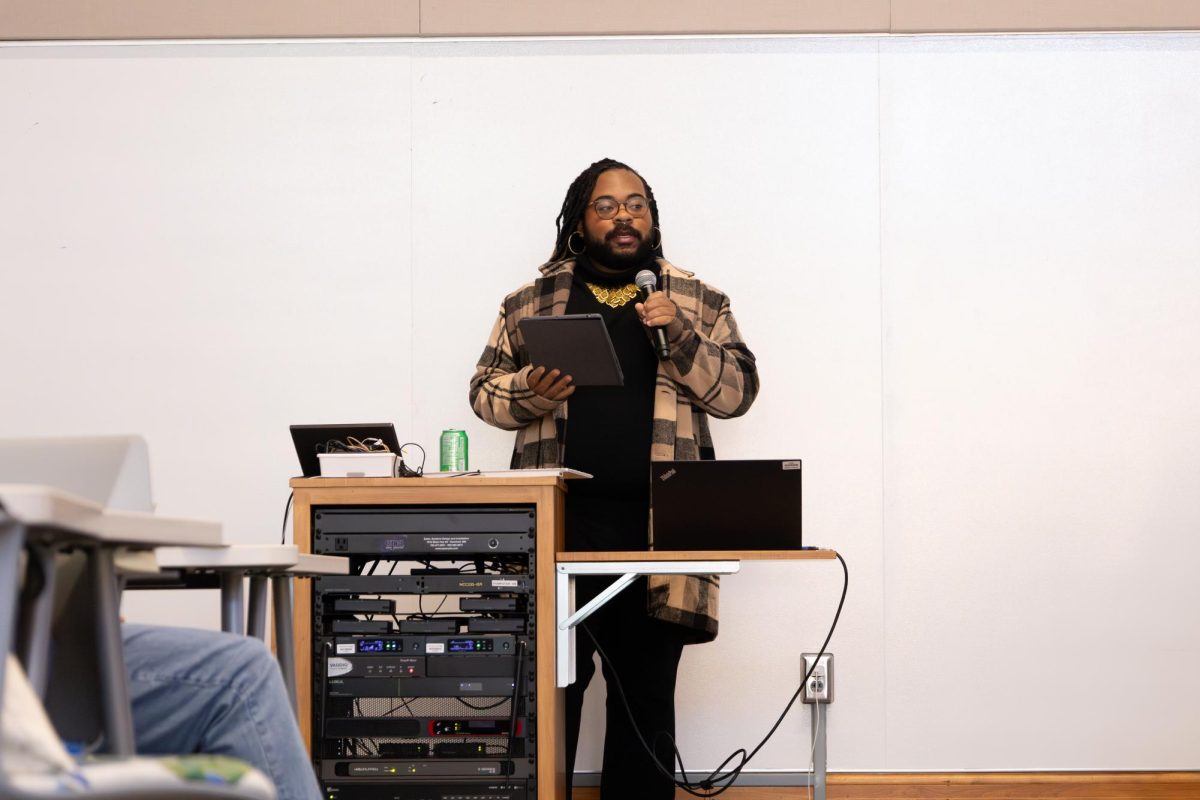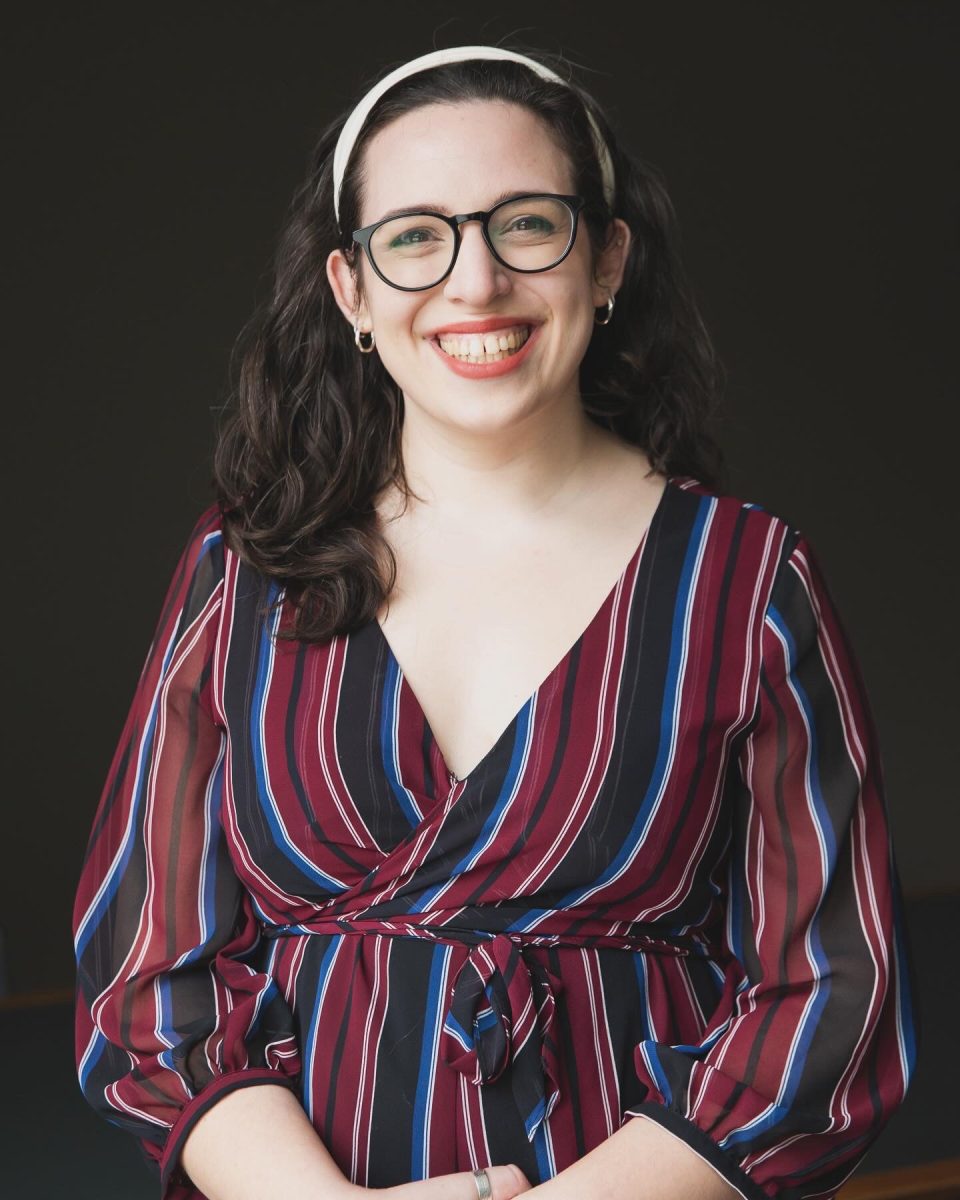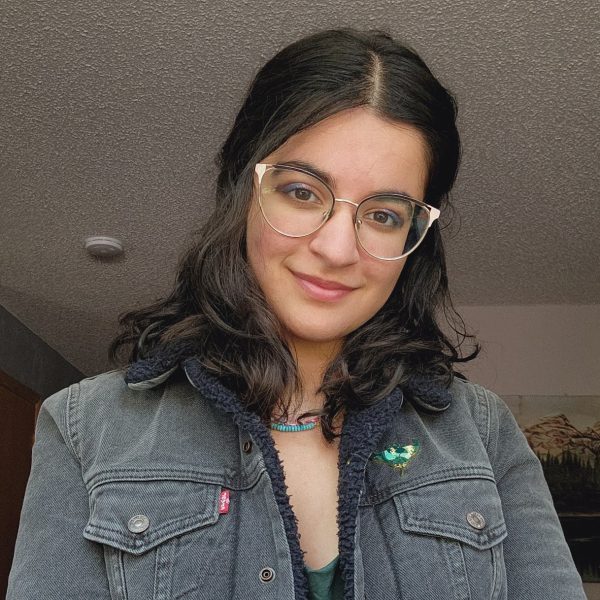This past spring break, the Dean of Students Office (DOSO) led its fourth “Northfield to Selma” spring break trip, an opportunity for students to travel between the sites of important events in the history of civil rights in the U.S. and learn about the history of abolition, the Civil Rights Movement and contemporary activist movements.
Bre Moore ’25, a first-time participant in the program, described the program as “an exploration of civil rights, specifically for African Americans, from slavery all the way to the modern-day systems of mass incarceration.”
The program originated in 2017 and is led by the Vice President and Dean of Students Carolyn Livingston. According to the DOSO website, this trip was created with the goal of imagining “ways to mindfully participate in the ongoing movement for equality and social change.”
“This trip is important because learning about my history is important,” said Victoria Kindall ’25, who went on the trip for her second time this spring.
On each trip, a small group of students travels from Northfield to Selma, AL, with stops along the way in historically significant cities such as Atlanta, GA, Greensboro, NC, Cincinnati, Ohio and Washington, D.C.
As a group, the students “visited a civil rights museum that focused on Alabama and the events surrounding Bloody Sunday, when marchers attempted to cross the Edmund Pettus Bridge to journey from Selma to Montgomery in order to vote, but instead were savagely beaten by state troopers,” Moore said.
Moore describes the bridge as “a physical manifestation of the metaphorical bridges they needed to cross to end segregation and secure the right to vote for all people. So by being able to walk, quite literally, in the footsteps of these brave people, we are able to cross our own bridges as well.”
The students walk in these footsteps by encountering and engaging with places that mark key moments and figures in African American history. Among many destinations, some highlights for this year’s cohort include the Frederick Douglass House in Washington, D.C., Virginia Union University (VUU) — a historically Black college/university (HBCU) in Richmond, VA — and a museum in Greensboro concentrating on the role of Black churches.
According to Kindall, the stop in Virginia was new this year. VUU shares trustee Pam Royall ’80 with Carleton, which facilitated this connection on the journey. HBCUs like VUU are key places of engagement with African American history as they are physical representations of the challenges that Black Americans have had and continue to face when seeking higher education.
This stop was a moment that stood out for Moore, who described a surprise visit from Virginia Governor Douglas Wilder, the first Black governor in the country and an alum of VUU.
“It was so wonderful, we got to talk to him and ask him questions, and he shared his wisdom with us. I don’t believe any of us had talked to a governor before, especially one so candid and kind, so it was a very special memory for us all,” Moore said.
Kindall also cited this moment as a special one for her, saying, “To learn from him as he shared his experiences was powerful.” Kindall added that another highlight for her was the final visit to her home state of Alabama. “Due to the rich history of the Civil Rights Movement, Alabama is home to some of the best museums, especially the Legacy Museum in Montgomery.”
The DOSO website keeps an archive of daily diaries from each trip — 2017, 2019, 2023 and 2025 — tracking changes throughout each iteration of this program, as well as allowing students to reflect on their experiences.
“As we sat on the bus I was left to think about the events of the past nine days and its impact in my life, wrote Gifty Amos Nwankwo ’19, a student from the first trip in 2017. “It is said that history repeats itself; through the lenses of this trip I witnessed history repeating itself. Their strength and resilience overwhelms yet motivates me. Their adversity gives me hope that we too, in this generation, will overcome the systems of oppression.”
Moore’s own reflections mirror similar ideas. She said that given the current political atmosphere, “I think it is important to go on trips like this because this is a form of protest, this is being able to say ‘No, I will not look away from the injustices that my people have suffered and continue to suffer. Instead, I will celebrate all that we have overcome and the culture that we have created.’”
Reflecting on her second Northfield to Selma trip as a senior, Kindall said, “In a weird way, the further away we got from Northfield, the more I learned about the many sacrifices and contributions made that allowed me to get to Carleton.”
Kindall continued, “It is important to not only learn about these places in history books but to see them and experience them in person. Walking the streets, hearing the testimonies, standing on the sites is just another level of powerful, and I will forever be grateful to Dean Livingston, Diana Lunow, Judith Pannell and Kari Scheurer for making all of this possible.”
Kindall highly recommended that students apply for the next Northfield to Selma trip, which will take place during spring break of 2027.



